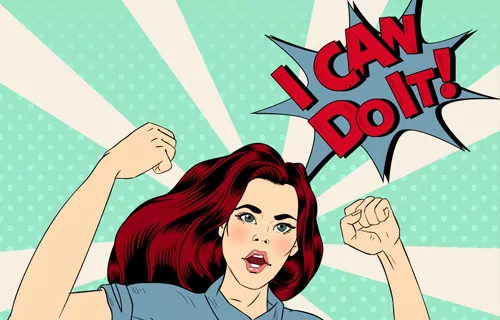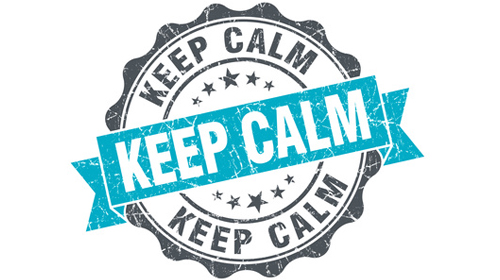Do you set out with good intentions but somehow find yourself always running late? Do you over-analyse every interaction in your life to the nth degree, leaving you feeling insecure and anxious? Do you get into arguments because you refuse to see the other person’s side and want to prove a point? Or is there a script running in your head that’s critical, demeaning and demoralising?
If any or all of the above apply to you then you may find yourself sabotaging the opportunities and joys that life presents to you. It’s as if, deep down, you feel you don’t deserve success, happiness or love – and so inadvertently you spoil your chances of ever achieving those things. In short, you become your own worst enemy, leaving you feeling lonely, stressed and miserable.
You’re not the only one who feels this. The pressure we put on ourselves is second only to money worries in terms of what creates stress in our lives, according to a recent survey of the things that stress British people out most.
The roots of self-sabotaging behaviours can run deep, but there are many ways to catch your enemy in its tracks and learn to stop beating yourself up. Here are six ways we recommend to stop being your own worst enemy.
Let things go
This is a tough one. Holding onto resentment at the comments and actions of other people can put you on the moral high ground. You may feel self-righteous, but it’s pretty lonely up there. They say that holding onto resentment is like drinking poison and expecting the other person to die. Except it’s you getting poisoned. Let go of your need to be right and see how free you feel.
Get to know your inner critic
That may be easier said than done, but the inner critic is better out than in. When it’s in your head it whispers insidious thoughts, making you feel ‘less than’. Have a look at it by drawing or painting it. Listen to what it has to say by letting it speak out loud. Find out what it really wants. As they say, keep your friends close and your enemies closer.
Just do it
The fearful part of you may go around the houses many, many times before committing to action. You may analyse, examine and critique your plans and find them wanting. A perfectionist trait can lead to paralysis, as the fear of getting things wrong keeps you trapped. Try throwing yourself into something for once. Believe that the task in hand needs to be complete, not perfect.
Know when to stop
The other end of this spectrum is being stuck in an overachieving loop. Do you have a to-do list that’s so long you will never achieve everything on it? Does it become a stick to beat yourself with because you haven’t ticked off absolutely everything on the list? Are you always first in and last out of the office, feeling a slave to your smartphone because you can’t bear the shame of missing something? This is exhausting, and is not helping you achieve your goals. In business circles they have what’s called SMART objectives (specific, measurable, achievable, realistic and timely). Start applying SMART to your to-do list. Pick a time of day when you will truly switch off. Being always on isn’t healthy.
Take time to play
What do you do for fun? The critical voice in your head may prefer to chain you to your desk, but you need an outlet that truly gives you time off and helps you feel free. Whether it’s an activity that’s social, sporty or creative, allow some time each week to let your inner child take the lead.
Trust your gut
Sometimes we don’t trust our own feelings, and we go along with what others want. This may be because we want to please them, we fear disappointing them, or because we can’t stand rejection. Your intuition may be telling you something, but you reject or override its advice and deny your true self from coming out. Getting in touch with your intuition, and learning to trust it, can help you feel stronger and more centred. It’s the most powerful defence against being your own worst enemy.
If you find your inner critic too much to bear, talking to a therapist can help explore your self-sabotaging behaviours and discover how to be kinder to yourself. Call 020 8673 4545 or email [email protected] to book an initial appointment. You can check out our team of therapists too (even though your enemy won’t like it!).








2 Comments. Leave new
I am feeling scared about money , probably not being rational about it. But some things changed so I have less income and more expenses- taxes, property taxes. So I am not eating in a healthy way. COVID-19 makes me anxious and depressed because I thrive on being with friends. My question is am I being a masochist?
I think part of this is that I feel so lazy, so I don’t take time to cook. I have been like this since Covid 19 isolation. What can I do to change this behavior?
Thanks for getting in touch. Covid-19 has been such an unprecedented situation and it is bringing out all types of different behaviours. Isolation can heighten feelings of anxiety and overwhelm. Speaking to a therapist may help you start to process your experiences over the last few months and to work on getting your motivation back. We wish you all the best.